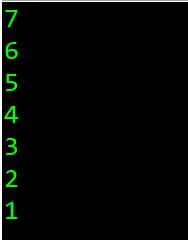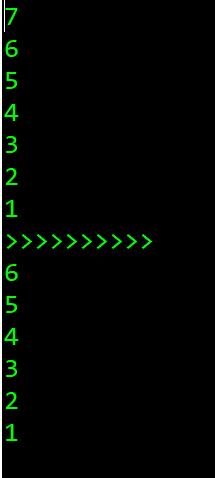栈---Stack
Posted You295
tags:
篇首语:本文由小常识网(cha138.com)小编为大家整理,主要介绍了栈---Stack相关的知识,希望对你有一定的参考价值。
栈---Stack
栈的概念
栈是一种只允许在一端进行插入和删除的线性表。,它的操作受限制。
表中只允许进行删除和插入的一端称为栈顶,另外一端称为栈底。
栈中插入数据通常称为入栈或者进栈(push),而栈的删除操作通常称为出栈或者退栈(pop)。
栈中无数据时称为空栈。
栈具有后进先出的特性,因此被称为后进先出表。
链表实现栈
1)定义节点
public class Node<E> {
public E data;
public Node<E> next;
public Node() {
}
public Node(E data, Node<E> next) {
this.data = data;
this.next = next;
}
public E getData() {
return data;
}
public void setData(E data) {
this.data = data;
}
public Node<E> getNext() {
return next;
}
public void setNext(Node<E> next) {
this.next = next;
}
@Override
public String toString() {
return "Node [data=" + data + ", next=" + next + "]";
}
}
2)定义栈
public class MyStack<E> {
private Node<E> head; // 头结点
private Node<E> top; // 栈顶
private int size; // 栈的大小
/**
* 获取栈的内容
*/
public int size() {
return this.size;
}
/**
* 获得头结点
*/
public Node<E> head() {
return this.head;
}
判断是否为空栈—.isEmpty()
/**
* 判断是否为空栈
*/
public boolean isEmpty() {
return this.size == 0;
}
自己写一个打印语句—.print()
/**
* 打印语句
*/
public void print(Node<E> head) {
System.out.println(head.data);
if (head.next == null) {
return;
}
print(head.next);
}
入栈操作—.push()
/**
* 入栈操作--push
*/
public void push(E e) {
final Node<E> newNode = new Node<>(e, null);
if (isEmpty()) { // 当为空栈时
head = newNode;
top = head;
} else { // 链表中的头插法
final Node<E> first = head;
newNode.next = first;
head = newNode;
top = newNode;
}
this.size++;
}
测试:
@Test
public void test() {
MyStack<Integer> stack = new MyStack<Integer>();
stack.push(1);
stack.push(2);
stack.push(3);
stack.push(4);
stack.push(5);
stack.push(6);
stack.push(7);
stack.print(stack.head());

获取栈顶元素操作—.peek()
/**
* 获取栈顶元素操作 --peek
*/
public E peek() {
if (isEmpty()) { // 为空栈时
throw new ExecaptionDemo("空栈异常");
} else {
return top.data; // 返回栈顶元素的值
}
}
测试:
@Test
public void test() {
MyStack<Integer> stack = new MyStack<Integer>();
stack.push(1);
stack.push(2);
stack.push(3);
stack.push(4);
stack.push(5);
stack.push(6);
stack.push(7);
System.out.println(stack.peek());

获取栈顶元素并且删除操作—.pop()
/**
* 获取栈顶元素并且删除 --pop
*/
public E pop() {
E e = peek(); // 首先获得栈顶元素
//删除操作:
Node<E> second = top.next;
top = null;
head = second;
top = head;
this.size--;
return e;
}
测试:
@Test
public void test() {
MyStack<Integer> stack = new MyStack<Integer>();
stack.push(1);
stack.push(2);
stack.push(3);
stack.push(4);
stack.push(5);
stack.push(6);
stack.push(7);
stack.print(stack.head());
System.out.println(">>>>>>>>>>");
stack.pop();
stack.print(stack.head());

以上是关于栈---Stack的主要内容,如果未能解决你的问题,请参考以下文章